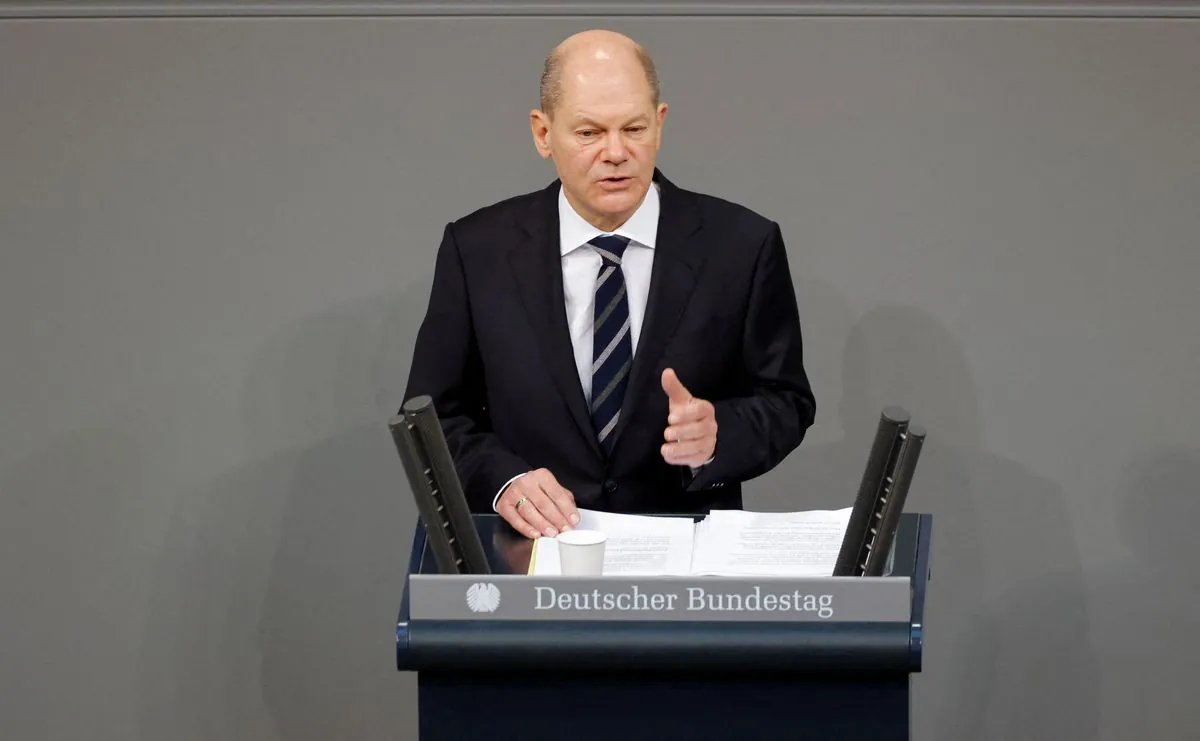Germany Proposes Zero Benefits for EU Asylum Seekers Amid Safety Concerns
German government announces strict measures on asylum seekers from EU states, aiming to cut benefits to zero. This policy shift comes amid regional elections and recent violent incidents, raising questions about its impact on voter sentiment.

In a significant policy shift, the German government has proposed eliminating benefits for asylum seekers arriving from other European Union states. This announcement comes as Chancellor Olaf Scholz seeks to address concerns about illegal migration and public safety, particularly in light of recent violent incidents.
The timing of this proposal is noteworthy, coinciding with regional elections in Thuringia and Saxony, two states in former East Germany where immigration and safety are contentious issues. These states, which were part of the German Democratic Republic until reunification in 1990, have seen growing support for far-right parties in recent years.
Interior Minister Nancy Faeser outlined the government's "tough measures" aimed at reducing benefits for individuals without legal right to be in Germany. She stated, "Nobody will starve or sleep in the streets," but emphasized that further support would be cut "to absolutely nothing. Just the deportation."
This policy shift represents a departure from the coalition government's initial stance when it took office in December 2021. At that time, the government, consisting of the Social Democratic Party (SPD), the Greens, and the Free Democratic Party (FDP), promised accelerated routes to citizenship and other measures as part of a "paradigm shift" in immigration policy.

The change in approach follows a series of violent incidents, including a deadly knife attack allegedly perpetrated by a Syrian refugee last week. This event has reignited debates about public safety and the effectiveness of existing immigration policies.
Germany, which accepted over 1 million asylum seekers during the 2015-2016 European migrant crisis, has been grappling with the challenges of integration and public perception. The country's status as the largest economy in the European Union and its generous asylum policies have made it a primary destination for many seeking refuge.
Chancellor Scholz, who has been in office since December 8, 2021, addressed the issue at an election event in Leipzig, Saxony's most populous city. He stated, "This is a clear sign: those who commit crimes cannot bank on the fact that we won't be able to deport them." However, the effectiveness of these measures in swaying voter sentiment remains uncertain.
The government's ability to implement these policies may face challenges due to existing EU regulations, such as the Dublin Regulation, which determines which member state is responsible for examining asylum applications. Additionally, Germany's federal system, comprising 16 states with their own governments, adds complexity to implementing nationwide policies.
As Germany navigates these complex issues, the outcome of today's regional elections in Thuringia and Saxony may provide insight into the public's response to the government's new approach to immigration and asylum policy.
"We can choose who comes to us and doesn't"
While the government aims to reassure voters about its commitment to public safety and controlled immigration, many citizens continue to express concerns about their communities' safety. The success of these measures in addressing these concerns and their impact on Germany's long-standing tradition of providing asylum to those in need remain to be seen.


































